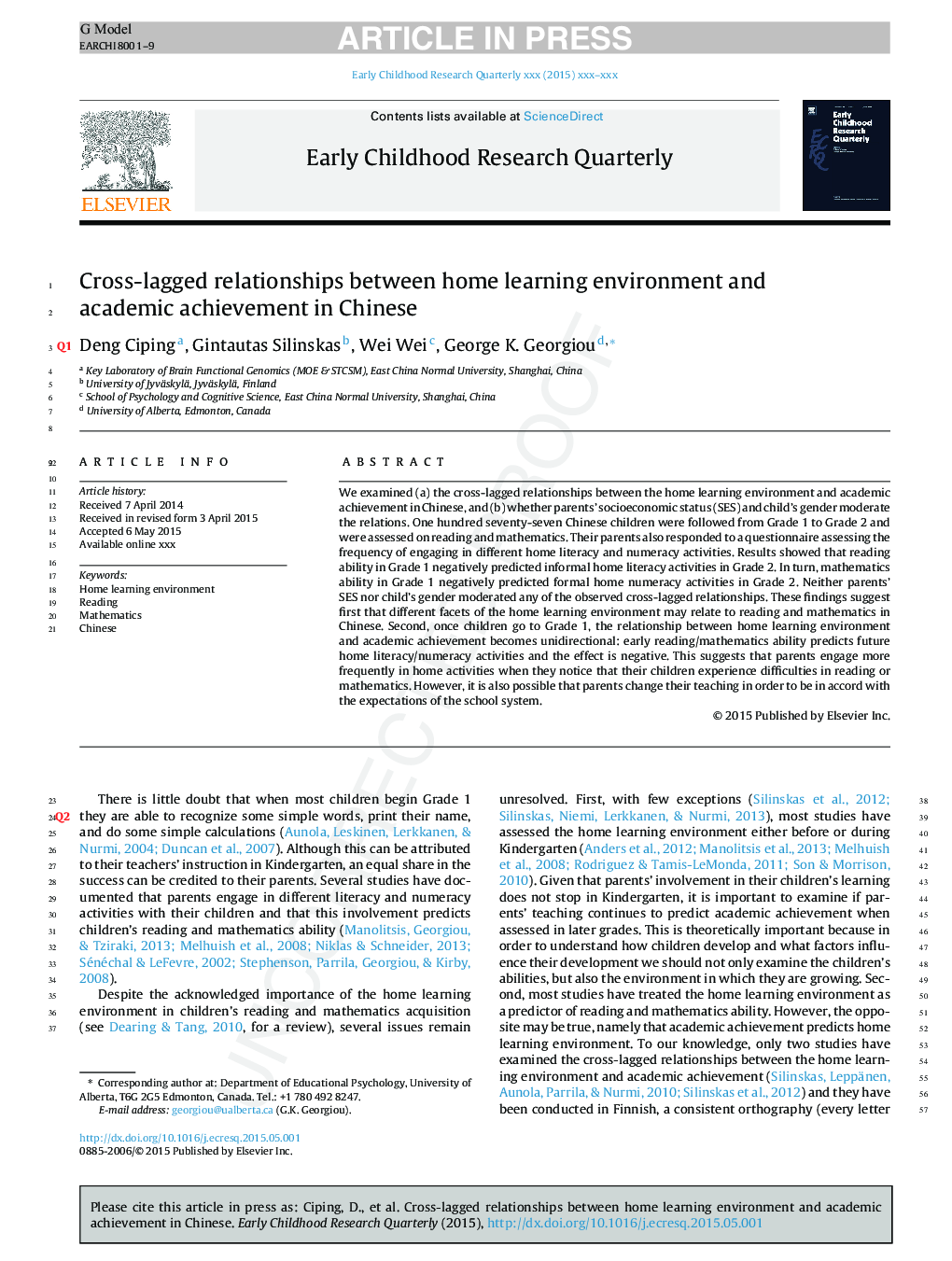| Article ID | Journal | Published Year | Pages | File Type |
|---|---|---|---|---|
| 6840742 | Early Childhood Research Quarterly | 2015 | 9 Pages |
Abstract
We examined (a) the cross-lagged relationships between the home learning environment and academic achievement in Chinese, and (b) whether parents' socioeconomic status (SES) and child's gender moderate the relations. One hundred seventy-seven Chinese children were followed from Grade 1 to Grade 2 and were assessed on reading and mathematics. Their parents also responded to a questionnaire assessing the frequency of engaging in different home literacy and numeracy activities. Results showed that reading ability in Grade 1 negatively predicted informal home literacy activities in Grade 2. In turn, mathematics ability in Grade 1 negatively predicted formal home numeracy activities in Grade 2. Neither parents' SES nor child's gender moderated any of the observed cross-lagged relationships. These findings suggest first that different facets of the home learning environment may relate to reading and mathematics in Chinese. Second, once children go to Grade 1, the relationship between home learning environment and academic achievement becomes unidirectional: early reading/mathematics ability predicts future home literacy/numeracy activities and the effect is negative. This suggests that parents engage more frequently in home activities when they notice that their children experience difficulties in reading or mathematics. However, it is also possible that parents change their teaching in order to be in accord with the expectations of the school system.
Related Topics
Social Sciences and Humanities
Psychology
Applied Psychology
Authors
Deng Ciping, Gintautas Silinskas, Wei Wei, George K. Georgiou,
